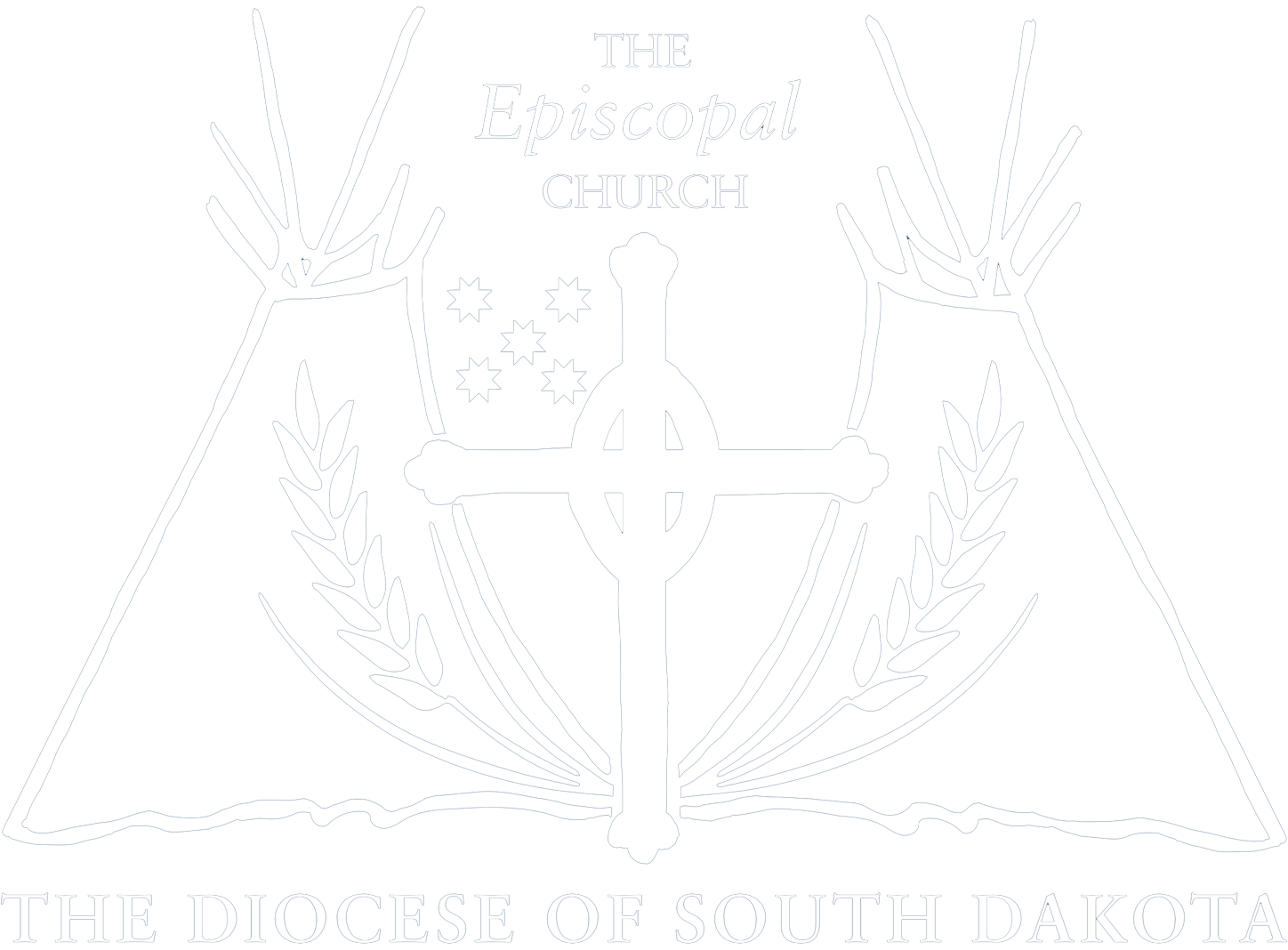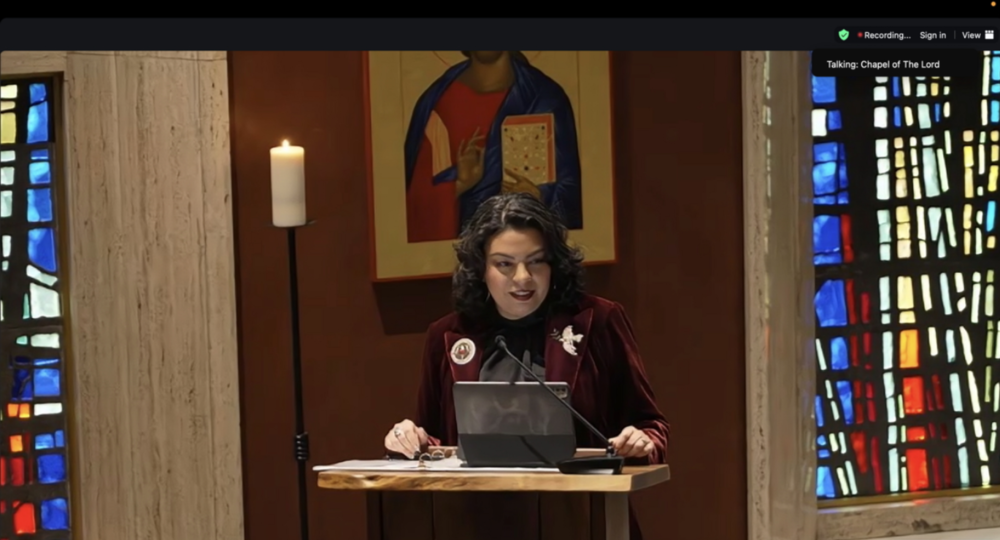[Episcopal News Service] Beginning today, March 10, six Episcopal leaders will represent Presiding Bishop Sean Rowe at the 69th United Nations Commission on the Status of Women – CSW69 – meeting in New York City.
They will join representatives of U.N. member states, U.N. entities and accredited nongovernmental organizations worldwide March 10-21 to advocate for women’s equality and empowerment and to learn how to make those goals a reality.
“UNCSW gives us the opportunity to lift up the voices of Episcopalians and Anglicans to advocate for gender justice, women’s rights and the dignity of all people of different sexual orientations, gender identities and expressions,” Rebecca Linder Blachly, The Episcopal Church’s chief of public policy witness, told Episcopal News Service in a written statement.
“We learn from fellow advocates from around the world, share our values and priorities with governments and multilateral institutions, and prepare ourselves to continue our advocacy when we return to our own communities,” she said.
Blachly is one of the church’s six delegates alongside Julia Ayala Harris, president of the House of Deputies; the Rev. Margaret Rose, the presiding bishop’s ecumenical and interreligious deputy and former director of The Episcopal Church’s women’s ministries; Lynnaia Main, the church’s representative to the United Nations; Nicole Hosein, director of Episcopal Relief & Development’s gender initiatives; and Troy Collazo, policy adviser with the church’s Office of Government Relations.
Because The Episcopal Church has been in a transitional phase since mid-2024 and going through leadership changes – Rowe took office as presiding bishop on Nov. 1 – this year’s delegation to the UNCSW meeting is smaller than usual.
2025 marks 30 years since the U.N. adopted the Beijing Declaration and Platform for Action during the Fourth World Conference on Women: Action for Equality, Development and Peace in Beijing, China. The declaration is a resolution that promotes gender equality and women’s rights through a set of principles addressing 12 critical areas of concern, including economic empowerment and political participation.
CSW69 and Beijing+30 will mostly focus on reviewing the implementation and outcomes of the Beijing Declaration. It will also address current challenges women and girls continue to face, including gender-based violence, wage gaps, economic barriers and lack of access to education and health care. Women and girls of color and LGBTQ+ women are disproportionately affected by these challenges.
“The broader the circle, the more we can be effective in answering our own Gospel call to work for justice and respect for all, and the presence of The Episcopal Church at UNCSW allows us to learn from partners who are committed to this same work,” Rose told ENS in a written statement. “This gathering of a worldwide community of civil society and faith-based groups highlights both our progress and the distance we have yet to travel; the Beijing Platform for Action offers a roadmap and an infrastructure for the journey.”
In October 2024, his last month as presiding bishop before retiring, former Presiding Bishop Michael Curry submitted The Episcopal Church’s CSW69 written statement in preparation for the conference this month. The statement outlines the church’s goals for the meeting:
Prioritize resources and programs for marginalized women and girls, including LGBTQ+ women, women of color, women with disabilities, migrant women, elderly women and others.
Increase access to resources, public services, social protections and infrastructure.
Increase access to economic and political power and decision-making.
Eliminate all forms of gender-based violence.
Address climate change, and environmental issues, which disproportionately harm women and girls.
“While celebrating progress for and by women and girls in all their diversity in the thirty years since the Beijing Declaration and platform for Action, we lament persistent injustices and call for change,” the statement says.
One third of women worldwide are known to have experienced physical or sexual violence, according to data compiled by the United Nations Entity for Gender Equality and the Empowerment of Women, also known as UN Women. The intentional killing of women and girls, or femicide, is also a global crisis. In 2022, nearly 89,000 known women and girls were murdered, the highest number recorded in 20 years. Femicide targeting transgender women and women of color has particularly been increasing every year.
Worldwide, women are paid about 80% of what men are paid, even if they do the same work. The average gender wage gap is not as wide in the United States, where women earn about 83% of men’s earnings on average, but the gap is much bigger for women of color. For every dollar a white man earns, Black women earn 63.7 cents, Indigenous women earn 59 cents and Latinas earn 57 cents.
During the 80th General Convention in 2022, the House of Bishops and the House of Deputies adopted A062, “Require Diocesan Plan to Narrow Gender Equity Gaps,” which required all dioceses to examine the demographics of parish leadership and gender pay equity while devising plans to reduce gender equity gaps before the 81st General Convention in 2024.
Ayala Harris, the fourth woman and first woman of color to serve as president of the House of Deputies, told ENS in an email that advocacy work must prioritize marginalized women, direct resources to grassroots efforts and challenge policies that sustain inequality. She mentioned that the Bible places marginalized women – Hagar, Ruth, Mary Magdalene and the Samaritan woman at the well – “at the heart of the Gospel.”
“Those stories reveal a pattern of justice beginning with those most at risk of being silenced. Too often, gender justice work centers those with the most privilege. That must change,” Ayala Harris said. “Justice that excludes the most vulnerable is not justice at all. As The Episcopal Church continues this work together, we must ensure our advocacy moves beyond words to real structural change.”
In 2018, Ayala Harris co-authored D016, “Create a Task Force for Women, Truth, and Reconciliation.” The resolution calls on The Episcopal Church to “engage in truth-telling, confession, and reconciliation regarding gender-based discrimination, harassment and violence against women and girls” through an intersectional lens.
On March 10, Ayala Harris preached during a livestreamed opening Eucharist at the Chapel of Christ the Lord at the Episcopal Church Center in Manhattan. Participants included members of the Anglican Communion and other members of the U.N. faith-based communities.
The Eucharist was dedicated to the American abolitionist Harriet Tubman, whose feast day is March 10 in The Episcopal Church’s calendar of Lesser Feasts and Fasts. Tubman, who was born enslaved in 1822 before escaping as an adult, is best known for helping about 70 enslaved people reach freedom as a conductor of the Underground Railroad, giving her the nickname the “Moses of Her People.”
During her sermon, Ayala Harris called the Beijing Declaration a “watershed moment,” quoting a speech made from Hillary Rodham Clinton, then the United States’ first lady, at the Fourth World Conference on Women: “Women’s rights are human rights.”
“That wasn’t merely a diplomatic achievement; it was a sacred covenant, a promise to future generations that gender justice would be central to human flourishing. And yet, here we are, still fighting to protect the gains we made; still watching as hard-won fights are stripped away; still hearing the cry of those suffering because we do not live in a moment of progress. We live in a moment of regression,” Ayala Harris said. “This is not just about women’s rights. It is about the fate of humanity. It is about the fate of the Earth itself.
“As we gather in these sacred days of the 69th Commission on the Status of Women, we are called not simply to deliberate, but to dedicate ourselves anew,” she said. “We are not here simply to commemorate Beijing’s promises; we are here to fulfill them.”
A livestreamed closing Eucharist will take place at Chapel of Christ the Lord on March 21 from 12:10-1 p.m. Eastern. The worship bulletin will be available online closer to the date.
In addition to the Eucharist, Episcopalians can participate in CSW69 by sharing The Episcopal Church’s written statement and by organizing local activities during and after the meeting. They can also share their thoughts on all social media platforms using the hashtags #CSW69, #GenerationEquality, #EpiscopalUN, #EpiscopalCSW and #EpiscopalAdvocacy. More information is available on the Episcopal UNCSW web page, and everyone is welcome to email episcopalun@episcopalchurch.org with questions.
-Shireen Korkzan is a reporter and assistant editor for Episcopal News Service. She can be reached at skorkzan@episcopalchurch.org.

